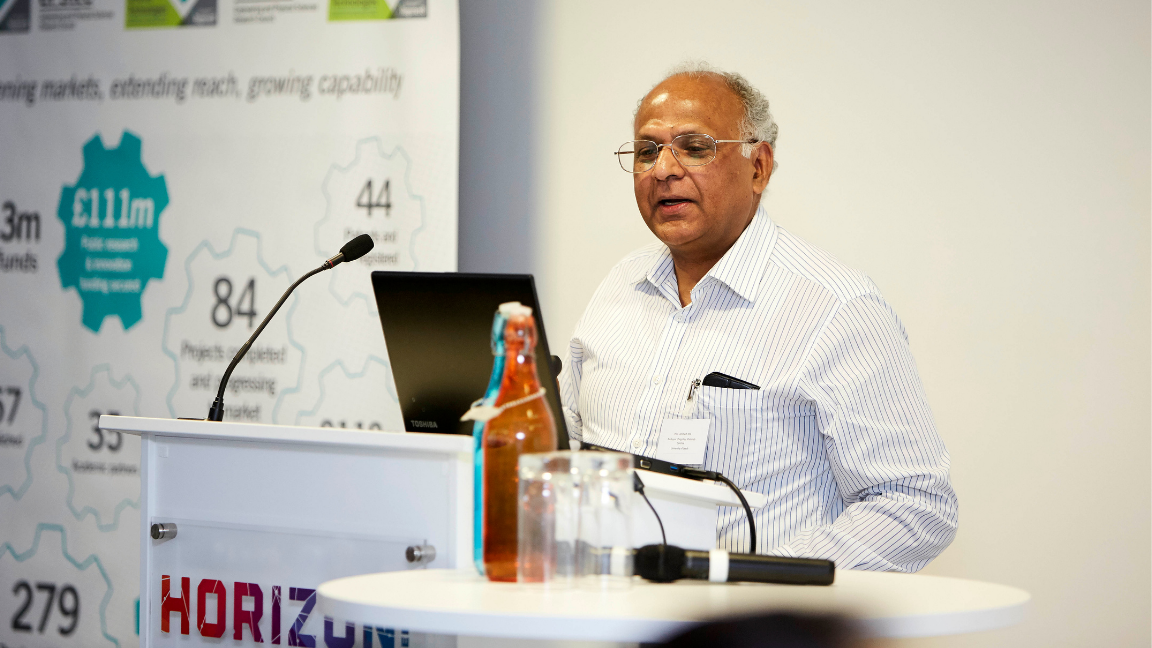
Case Study
Enamel repair technology trialled on human teeth
Date: May 18, 2022
A method of repairing tooth enamel, developed with IKC support and additional funding from the EU, Innovate UK and EPSRC, is being trialled on human teeth.
The device was developed by Professor Animesh Jha from the University of Leeds, in collaboration with Professors Tom Brown and Wilson Sibbett at the University of St Andrews. It delivers a synthetic calcium phosphate material directly onto lesions in the enamel, where it is then hardened using ultra-fast pulsed lasers.
Professor Jha and his colleagues have received advice and guidance from the IKC since they first created the technique in 2012, using bench top lasers and different bio-mineral coatings, through an IKC proof of concept grant. The IKC helped the team to gain additional funding from Innovate UK in 2018 as part of the APOLLONIA project, led by Attenborough Dental, which enabled them to build a prototype and look at pre-surgical diagnostics, laser-assisted enamel treatment, and follow-on restorative analysis of enamel.
Partnerships and funding
Through these collaborative partnerships and grants, Professor Jha has been able to design in-vitro laser resurfacing of human enamel for trials in healthy human volunteers. The volunteer data will be compared with parallel, controlled in-vitro studies on human and bovine enamel and brushing trials on laser-resurfaced enamels. The goal is to determine how well the resurfaced enamel can resist acid conditions and erosion from brushing. The team will generate a comprehensive set of data to determine what future improvements are needed in the device and materials to prepare for first-in-human trials.
Professor Jha says: “The trials on human teeth will demonstrate the effectiveness of the technique, but the in-vitro studies are very important as well. Everyone has slightly different conditions in their mouths due to the acidity of their saliva. The in-vitro studies allow us to replicate these environments to analyse and predict how the material will behave.”
Twenty-three volunteers, recruited through the University of Leeds Dental School have agreed to take part in the trial. The volunteers will wear an in-situ mouth appliance containing donated and disinfected teeth which have been resurfaced with acid-resistant enamel using the patented laser technology developed by Leeds and St. Andrews. The in-situ mouth appliance will be worn by volunteers over several weeks during which time the resurfaced layer of the teeth is brushed twice a day.
Extreme environment
The team are also testing repaired extracted teeth and bovine teeth in the lab under different acidity levels.
“We’re testing the teeth under very aggressive conditions, equivalent to drinking several bottles of a fizzy drink and holding the liquid in the mouth for at least for a few minutes, five times a day,” says Professor Jha. “This creates a very extreme environment, and we know if the material survives this, then it will survive the normal oral environment as well.”
The IKC has supported nearly 270 proof-of-concept, technology development and demonstration projects, of which 84 have progressed beyond technology readiness level (TRL) 4 and on to commercial product development. Since it was first established in 2009, the IKC has enabled more than 50 different products and services to reach the market.
Back to Case Studies
